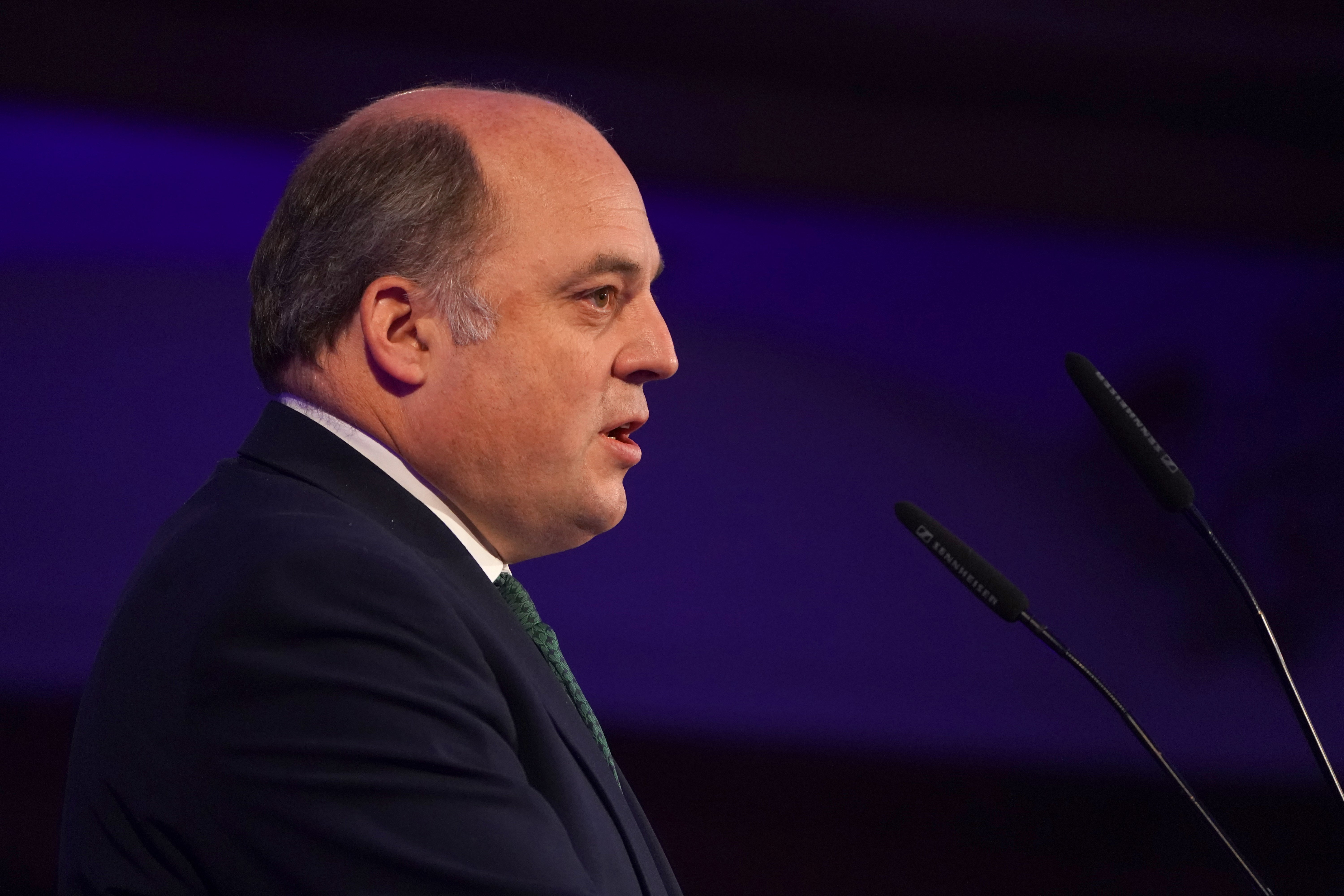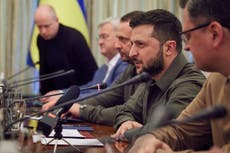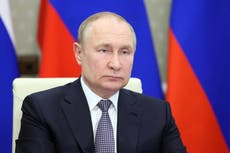Britain ready to commit 1,000 extra troops to Estonia to defend Nato
Western alliance agrees massive expansion plan for 2023, as leaders invite Sweden and Finland to join
Britain will commit more troops to Estonia to defend Nato’s eastern flank against the Russian threat as part of massive expansion in the defence alliance, Ben Wallace has said.
The defence secretary suggested at least 1,000 extra UK troops would join an enlarged force in the Baltic state, though he stressed that final details would have to be worked out in the months ahead.
Nato leaders at a summit in Madrid agreed on Wednesday to increase its “high readiness” response force from 40,000 to 300,000 troops – but officials said the contribution of each country would not be finalised until early next year.
The alliance also formally agreed to invite Finland and Sweden to become members after Turkey dropped its objections. Nato secretary-general Jens Stoltenberg said he hoped the ratification process could now happen “as quickly as possible”.
Boris Johnson said the surge in troops and accession of two new members showed that Russian leader Vladimir Putin had been “completely wrong” if was hoping he would reduce Nato influence on his western front. “He’s getting more Nato.”
Speaking to reporters in Madrid, the defence secretary explained that more British troops would join the existing UK-led battlegroup in Estonia of around 1,700 UK personnel – turning the British-led force into the size of a “brigade”.
Mr Wallace said a typical brigade was around 3,000 troops, suggesting that at least 1,000 extra British troops could be assigned. But he added that some personnel committed to the force would be on stand-by at home in the UK.
The senior cabinet minister also continued his row with Boris Johnson over military budgets on Wednesday by suggesting the true proportion of defence spending was less than 2.3 per cent of GDP.
Downing Street said defence spending was projected to rise to 2.3 per cent of output this year, partly due to billions of pounds of support committed to Ukraine.
The UK committed an extra £1bn of military aid for Ukraine, on top of the £1.3bn already provided. No 10 said the funding would go towards air defence systems, drones and electronic warfare equipment.
But the defence secretary told reporters: “[Ukraine support] isn’t core defence spending. I mean, it is not my core budget. It doesn’t buy me any more planes, tanks or ships.”
It comes as new research showed that the military faces real-terms cuts of £1.7bn over the next three years. Analysis from the Commons Library commissioned by the Lib Dems forecast 5.6 per cent real-terms cut to day-to-day Ministery of Defence spending by 2024-25.

Mr Wallace also suggested British aircraft could help secure shipping routes to release Ukraine’s trapped grain if Turkey manages to do a deal with Russia.
He told reporters that Rivet Joint or P8 Poseidon surveillance aircraft could patrol areas of the Black Sea if a deal was done to allow grain ships to leave Ukraine’s blockaded ports.
“What the Turks are trying to do is, with the UN, hammer out details with the Russians about doing it,” he said, adding that British aircraft could help “in the southern part of the Black Sea to protect”.
The US announced that it will maintain a presence of 100,000 troops in Europe – up 20,000 from the levels before the Ukraine war – for the “foreseeable future”.
While details of US involvement in the expanded response force have yet to be agreed, American officials said there would now be a “permanent” station in Poland led by the US Army V Corps forward command.
Mr Johnson praised Turkish president Recep Erdogan for “paving the way for Finland and Sweden’s accession to the alliance”.
The prime minister also described Putin as “evil”, as ministers stepped up their personal attacks on the Russian president. Mr Wallace said Mr Putin had "small man syndrome" and was a “lunatic”.
Join our commenting forum
Join thought-provoking conversations, follow other Independent readers and see their replies
Comments



Bookmark popover
Removed from bookmarks